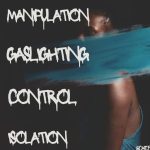Healing after leaving an abusive partner is a deeply personal and often challenging journey, but it’s one filled with growth, self-discovery, and the possibility of renewal. When someone escapes an abusive relationship, it’s not just about physically leaving; it’s about rebuilding the emotional and psychological parts of themselves that may have been broken down over time.
Processing the Trauma
Leaving an abusive partner often brings a mix of relief, fear, sadness, and confusion. Many survivors struggle with guilt or self-blame, wondering why they stayed so long or whether the abuse was their fault. It’s important to remember that abuse is never the victim’s fault, and healing involves learning to release that misplaced guilt.
Talking through the trauma with a trusted friend, support group, or therapist can help make sense of these conflicting emotions. It’s about giving yourself permission to feel everything—from anger to sadness—without judgment. Healing takes time, and there’s no “right” way to do it.
Rebuilding Self-Esteem
Abusive relationships can strip away a person’s self-confidence, leaving them feeling worthless or powerless. Rebuilding self-esteem is a key part of healing. It involves recognizing your value, independent of what your abuser told you. Small steps, like practicing self-care, setting personal goals, or engaging in activities you once loved, can help reconnect you with your inner strength.
Creating Healthy Boundaries
After leaving an abusive relationship, it’s important to learn how to set healthy boundaries in all areas of life. Whether in friendships, family dynamics, or future romantic relationships, clear boundaries ensure that your emotional and physical well-being is prioritized. This might mean saying “no” more often, asserting your needs, or distancing yourself from people who drain or manipulate you.
Seeking Support
Healing doesn’t have to be done alone. Surrounding yourself with supportive people—whether they’re family, friends, or others who understand what you’ve been through—can make a big difference. Support groups for survivors of domestic violence can be particularly helpful, as they provide a space to share your story with others who’ve faced similar experiences, offering validation and strength.
Rediscovering Independence
For many, leaving an abusive partner means learning how to live independently again—emotionally, financially, and socially. This can feel overwhelming at first, but it’s also an empowering part of the healing process. Taking control of your own life, making your own decisions, and rediscovering the things that bring you joy can be incredibly liberating.
Forgiving Yourself, Not the Abuse
Healing often involves forgiving yourself for what you went through. This doesn’t mean excusing the abuse or pretending it didn’t happen, but rather, allowing yourself the grace to move forward without being weighed down by the past. It’s about embracing your resilience and courage in surviving, and recognizing that you are more than what happened to you.
Finding Hope
Healing from abuse is not a straight path, and there will be ups and downs. But over time, the pain and fear will lessen, and you’ll begin to rediscover peace and joy. Remember that healing isn’t about forgetting what happened; it’s about learning to thrive in spite of it, and embracing the strength and wisdom that comes from surviving.
Ultimately, healing is about reclaiming your life, rediscovering your worth, and knowing that you deserve a future filled with love, respect, and safety.




0 Comments